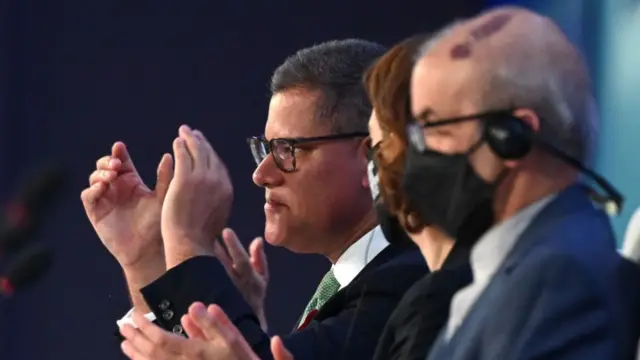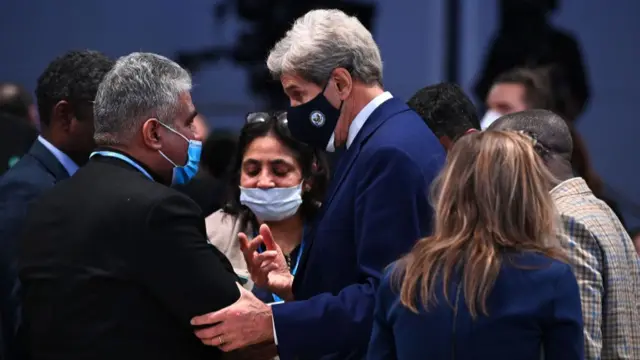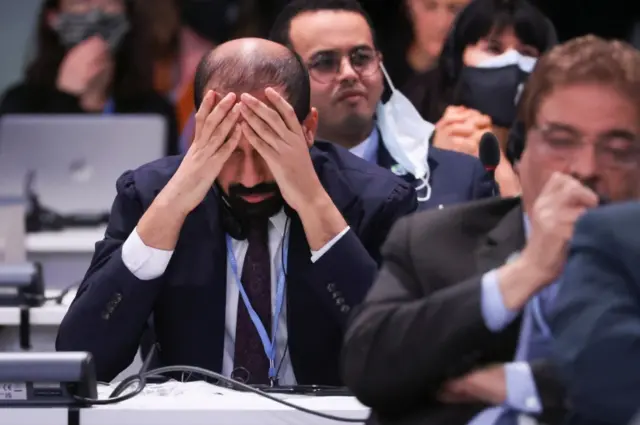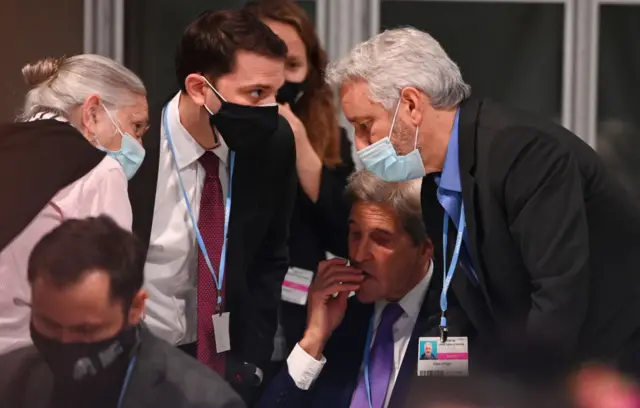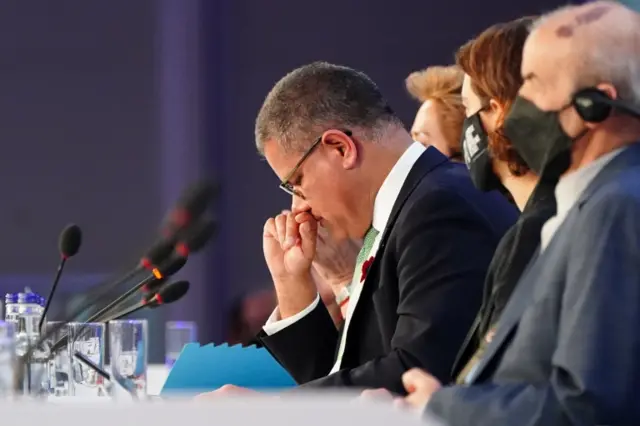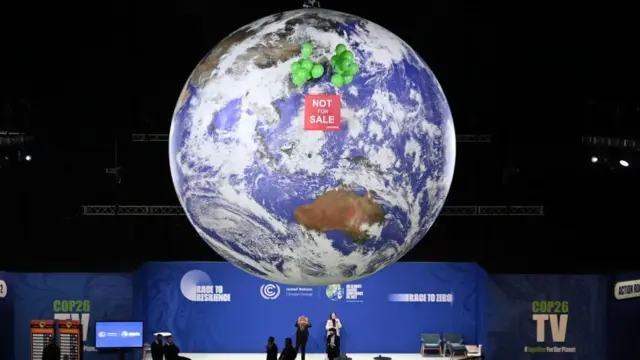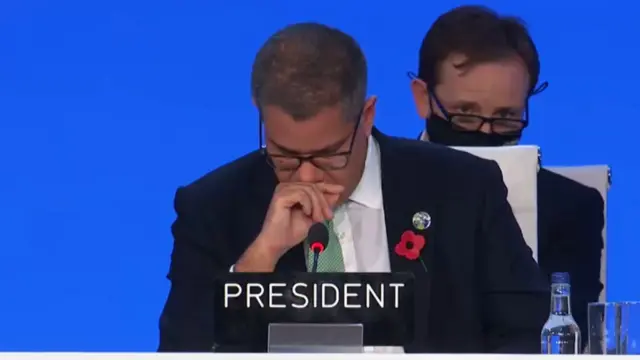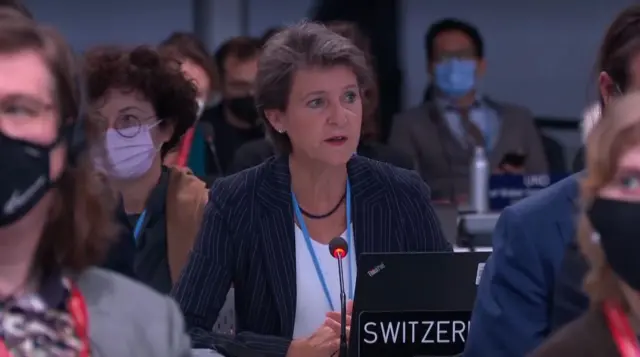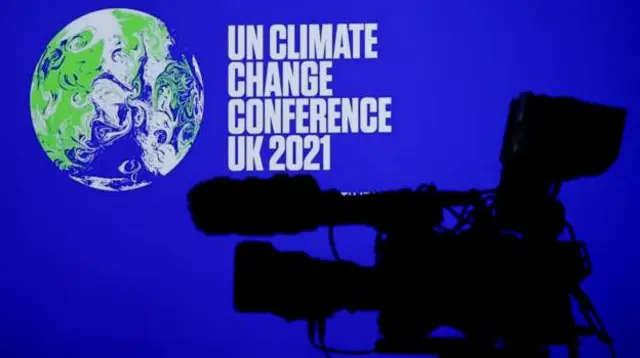'Missed opportunity' in Glasgow - Starmerpublished at 21:13 GMT 13 November 2021
The opposition leader Sir Keir Starmer has described the summit as a "missed opportunity", but acknowledges the agreement represents "modest progress" towards limiting global warming.
The Labour party leader says: "But we have seen too many promises for tomorrow, not the action that the climate emergency demands today."
"Glasgow has been a missed opportunity - a summit too often of climate delay not climate delivery".
Starmer also accuses Prime Minister Boris Johnson of not treating the climate summit with sufficient seriousness or building trust critical to its success, saying he "bears some responsibility" for the lack of action in the agreement.
Boris Johnson hasn't commented yet on the summit.
